When Syria’s new interim prime minister, Mohammad al-Bashir, chaired a Cabinet meeting in Damascus on Tuesday, hanging behind him was the flag of the country’s suddenly victorious opposition.
Next to it, however, was a second banner popular with the region’s Sunni Islamist fighters, featuring the large Arabic letters of the Shahada, an Islamic declaration of faith.
As a new Syria fast emerges from the ruins of the Assad regime, the world is watching for hints of what that might look like — and that second flag has concerned those hoping for a future of moderation and tolerance.
That path will largely depend on Hayat Tahrir al-Sham, the rebel organization that led the charge into Damascus and is now stewarding Syria’s political overhaul.
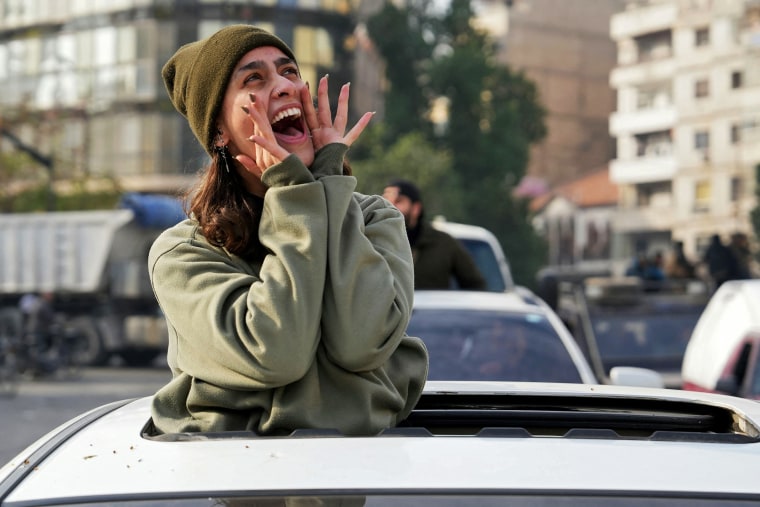
HTS is banned as a terrorist organization in the United States and elsewhere and grew out of a branch of Al Qaeda. Its leader, Abu Mohammad al-Jolani, said a decade ago that there would be no room for religious minorities in the Islamist Syria of which he dreamed about. He also suggested that he could bring terrorism to the West unless it withdrew from the Middle East’s wars.
More recently, however, Jolani, who now uses his real name, Ahmad al-Sharaa, has undergone something of a rebrand, trimming his beard, donning Westernized green fatigues and espousing tolerance for all of Syria’s myriad faiths. Nevertheless plenty of observers are reserving judgment until these words become actions.
“I think we should be very cautious of him,” said Bilal Sukkar, a Syrian-born senior associate with the London-based intelligence consultancy S-RM. That trepidation goes for “not only respecting the rights of people belonging to other religious and sectarian groups,” he said, “but actually looking at them as equal citizens.”
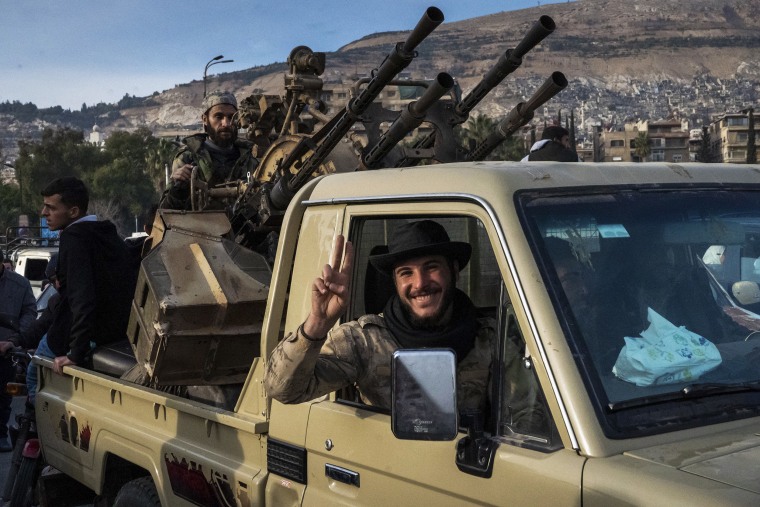
Seeing Syria’s corridors of power welcome a flag “indicating Islamist-Salafist leanings” has “put people on alert,” Sukkar said. Although he does not think deploying the emblem was a “wise” move, he sees it as more reflective of the rebels’ origins in Idlib rather than anything else.
Such demographic accommodations are a huge deal in Syria, which is “home to a vast diversity of religious and ethnic groups,” according to the Harvard Divinity School. Some 74% of the population are Sunni Muslims, another 13% belong to other sects, such as Shia and Alawite, and 10% are Christian.
The classic worry among Western foreign policy watchers was that Assad might be toppled but replaced by something that is not much better: an extremist terror group.
Assad’s regime was, rightly or wrongly, seen internationally as one of brutal secularism and relative interreligious tolerance. By contrast, HTS has in the past explicitly defined itself as Islamist, meaning it seeks to reorder society along Islamic law.
Displaying the flag in an image meant to represent Syria’s new transition government shows how HTS and Jolani are still “deeply entrenched in their Salafist-Sunni ideology and worldview,” according to Fawaz Gerges, a professor at the London School of Economics and author of the 2024 book, “What Really Went Wrong: The West and the Failure of Democracy in the Middle East.”
They are not going to rule Syria with the brutality of the Islamic State terrorist group or the Taliban, Gerges added, “but it would be disingenuous to say he has shedded his ideology.”
Gerges is among observers who see the presence of the flag as a signal that the militant group is intent on keeping its imprimatur on the new era it helped birth. Al-Bashir, chosen after a meeting with Jolani, says he will only be in post until March. But it’s not clear what happens then.
There have been positive early signals, including an edict that women should not be told what they can and cannot wear, as well as a plea for people not to seek vigilante vengeance.
“We will guarantee the rights of all people and all communities in Syria,” al-Bashir told the Italian newspaper Corriere Della Sera on Tuesday. Asked whether the country’s new Constitution would be “Islamic,” he added, “God willing, we will clarify all these details during the constitutional process.”
With the group now making more moderate noises, and also in a position of considerable influence, the United States is exploring removing HTS’ terrorist designation, two current administration officials and a former senior U.S. official told NBC News. Although Washington will watch closely the militant group’s moves from its new political vantage point.
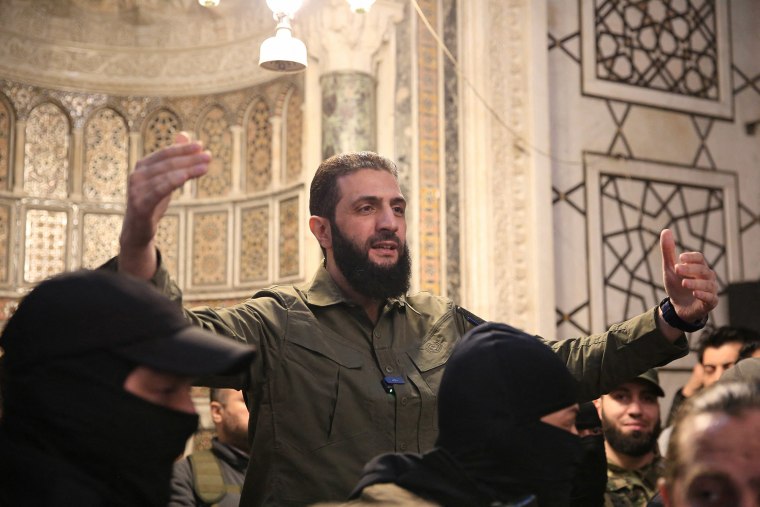
Some observers, such as Gerges, see the interim prime minister as little more than an Jolani figurehead.
Even inside Syria, he is not a well-known figure. Previously, he ran the government in Idlib province, a small, rural corner of northwestern Syria where rebels maintained control outside Assad’s regime until their stunning offensive.
He heads what is being touted by the incoming officials as a technocratic government; he is a trained electrical engineer and has previously backed the digitization of Idlib’s public services.
He and his officials are now going about the process of auditing and stripping back what they and independent international watchdogs say was a deeply corrupt regime.
Gerges worries that HTS and its leader have already amassed such power that they may be reluctant to relinquish it, and that there is little sign of checks or balances to contain Jolani’s ambitions now that Assad has been toppled.
Syria may be getting “rid of a strongman,” he cautioned, “and replacing him with another strongman.”


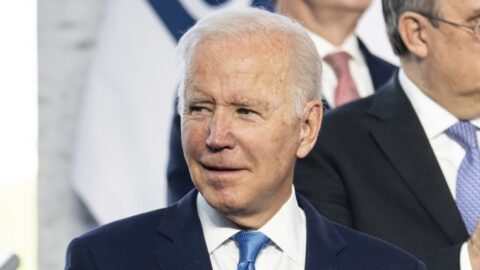
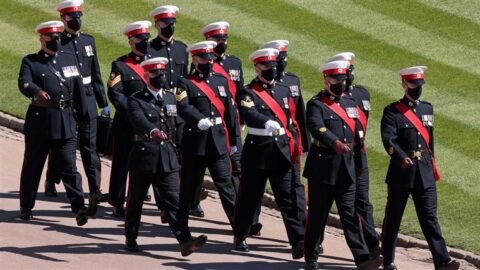


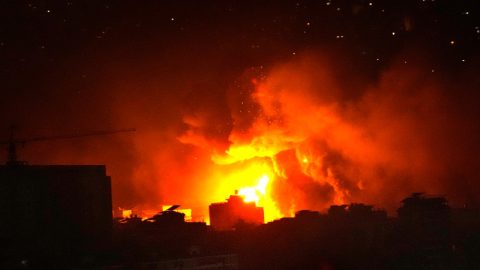
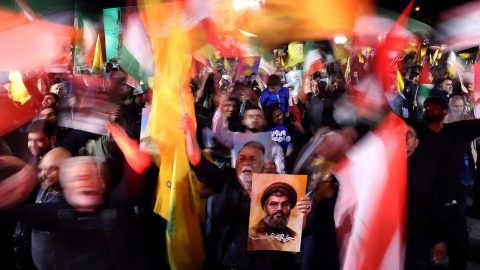
Recent Comments